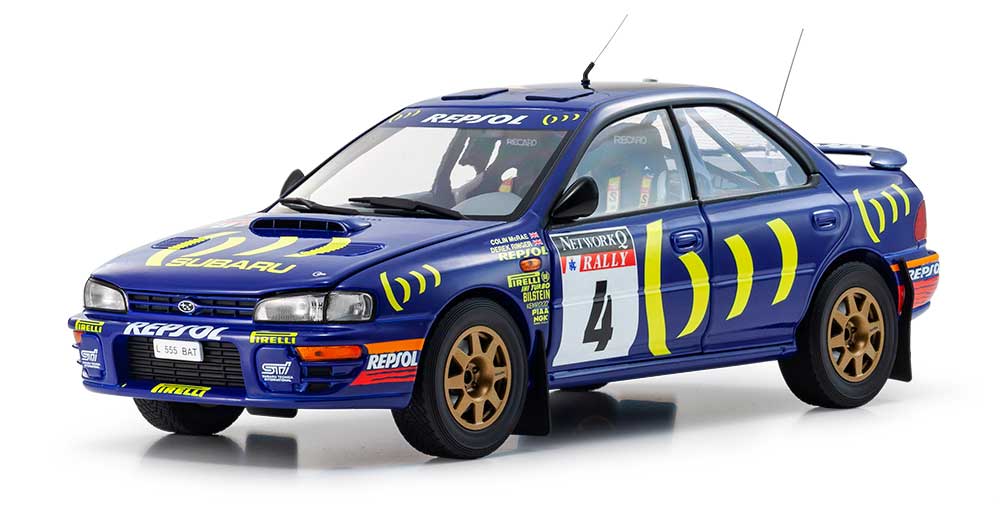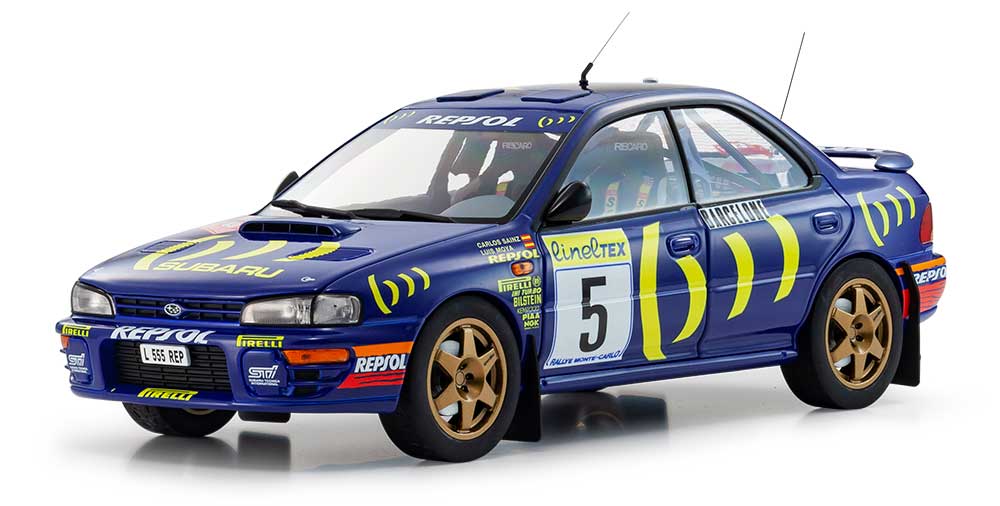1:18 scale DIE-CAST Model
Subaru Impreza
Subaru entered its first 4WD machine in the WRC (World Rally Championship) in 1980 but didn’t embark on its full-scale assault until 10 years later in 1990. To challenge the WRC, Subaru used its new generation Legacy and teamed up with British constructor Prodrive. After four years of hard slog, Subaru only had a single victory to show for it. However, the dream of world rally domination would be realized by its successor, the Impreza, full of racing technology loaded into a more compact body. Surprising the rally world with a 2nd place finish on its debut in 1993, the Impreza won three times in its first full season in 1994. With momentum behind it, the Impreza claimed the golden double of the manufacturer and driver titles in 1995, followed by consecutive manufacturer titles in 1996 and 1997, making the Subaru name synonymous with WRC around the world. The lineup features the RAC specification of 1994 that won the Impreza’s first race victory, and Monte Carlo specification that competed in the opening race of the 1995 season.
MOVIE
Subaru Impreza
Detail (1994 RAC #4)
Gallery (1994 RAC #4)
Detail (Monte Carlo #5)
Gallery (Monte Carlo #5)










